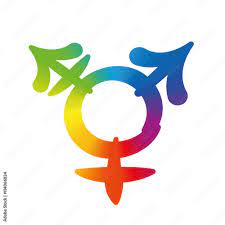Estrogen is often thought of as a female hormone, but men also produce it—just in smaller amounts. An imbalance, particularly elevated estrogen levels, can lead to various health issues for men. In this article, we’ll explore how to manage and reduce estrogen levels naturally. By understanding the basics of estrogen, recognizing symptoms of high levels, and making lifestyle changes, you can support your hormonal health effectively.
Understanding Estrogen: The Basics for Men
Estrogen is a crucial hormone that plays roles beyond reproduction, including regulating mood, bone density, and fat distribution. In men, it’s primarily produced in the testes and adrenal glands and is formed through the conversion of testosterone via an enzyme called aromatase. A healthy balance between testosterone and estrogen is essential for overall wellness. However, when estrogen levels become too high, it can disrupt this balance and lead to unwanted side effects.Feminized Men StoriesSissy Boy HypnosisHow Does A Man Turn Into A Woman
Men generally have lower estrogen levels than women, but certain factors like obesity, aging, and environmental influences can lead to increased levels. Understanding how estrogen functions and its impact on male health will empower you to take proactive steps toward managing these levels. So, let’s dive into the symptoms that might signal an estrogen imbalance.
Common Symptoms of High Estrogen in Males
Recognizing the signs of high estrogen can be the first step in addressing hormonal imbalances. Some common symptoms include weight gain, particularly around the abdomen, decreased libido, and mood swings. Additionally, men may experience gynecomastia, which is the enlargement of breast tissue. These changes can be distressing and may affect self-esteem and confidence.
Other symptoms can include fatigue, decreased motivation, and even memory issues. If you’ve noticed any of these signs in yourself, it might be time to take a closer look at your lifestyle and health habits. Understanding these symptoms is crucial for determining a path forward to achieve better hormonal balance.
Diet Changes to Help Lower Estrogen Levels
Diet plays a fundamental role in regulating hormone levels, including estrogen. Incorporating foods that support testosterone production and estrogen metabolism can be beneficial. Cruciferous vegetables such as broccoli, cauliflower, and Brussels sprouts contain compounds like indole-3-carbinol, which helps eliminate excess estrogen from the body. Additionally, incorporating healthy fats from sources like avocados, olive oil, and nuts can support hormone health.
On the other hand, certain foods can exacerbate high estrogen levels. It’s wise to limit processed foods, excess sugars, and trans fats, as these can contribute to weight gain and hormonal imbalances. Alcohol is another factor that can elevate estrogen levels, so moderation is key. Making conscious dietary choices can significantly impact your hormone levels and overall health.
Exercise Tips to Reduce Estrogen Naturally
Engaging in regular exercise is another effective way to help reduce estrogen levels. Weight training, in particular, has been shown to boost testosterone and improve overall hormonal balance. Aim for a mix of cardiovascular workouts and strength training to achieve optimal results. High-intensity interval training (HIIT) can also be particularly effective, as it helps burn fat, which is crucial since fat cells can produce estrogen.
Consistency is key, so find activities you enjoy and stick with them. Even simple daily activities like walking, biking, or swimming can contribute to better hormonal health. Not only does exercise help balance estrogen levels, but it also improves mood, supports weight management, and enhances overall well-being.
The Role of Sleep in Hormone Balance
Sleep is often overlooked, but it’s essential for hormone regulation, including estrogen and testosterone. Poor sleep can lead to hormonal imbalances, including elevated estrogen levels. Aim for 7-9 hours of quality sleep per night. Establishing a consistent sleep schedule, creating a relaxing bedtime routine, and minimizing screen time before bed can greatly enhance sleep quality.
Additionally, quality sleep allows your body to undergo critical processes, including hormone regulation and recovery. When you’re well-rested, your body is more efficient in managing hormone levels. So, don’t underestimate the power of a good night’s sleep!
Supplements That Might Help Lower Estrogen
Certain supplements may also assist in managing estrogen levels. For instance, Zinc is known to support testosterone production and can assist in balancing hormonal levels. Likewise, DIM (Diindolylmethane), a compound found in cruciferous vegetables, has been shown to aid in estrogen metabolism.
Omega-3 fatty acids can also play a role in hormone regulation, so consider incorporating fish oil supplements or fatty fish into your diet. However, it’s important to remember that supplements should complement a healthy diet and lifestyle rather than replace them. Consulting a healthcare professional before starting any supplementation can ensure that you choose the best options for your individual needs.
Lifestyle Habits to Avoid High Estrogen Levels
There are several lifestyle habits to avoid if you’re looking to keep estrogen levels in check. First and foremost, strive to maintain a healthy weight, as excess body fat can lead to higher estrogen production. Additionally, try to reduce exposure to environmental estrogens, also known as xenoestrogens, which are found in some plastics, pesticides, and personal care products. Using glass or stainless steel containers and choosing organic produce can help mitigate these exposures.
Moreover, managing stress is crucial. Chronic stress can lead to elevated cortisol levels, which can indirectly affect estrogen levels. Incorporate stress-relief practices such as mindfulness, yoga, or deep-breathing exercises into your daily routine. These small changes can significantly impact your overall hormonal balance.
When to Seek Professional Help for Hormonal Issues
If you suspect that you have high estrogen levels or you’re experiencing troubling symptoms, it may be time to consult a healthcare professional. A doctor can conduct tests to assess your hormone levels and provide tailored advice based on your unique situation. This is particularly important if you’re considering supplements or significant lifestyle changes.
Don’t hesitate to seek help, especially if you’re experiencing symptoms that are affecting your quality of life. Addressing hormonal imbalances early can prevent more significant health issues down the road and improve your overall well-being.
Managing estrogen levels in men is an important but often overlooked aspect of health. By understanding the role of estrogen, recognizing symptoms of imbalance, and making informed lifestyle choices, you can effectively work towards better hormone health. Remember, it’s all about balance—taking care of your body holistically will not only help keep your hormones in check but will also lead to a happier, healthier you. Don’t hesitate to make these changes, and consult a professional if needed!


